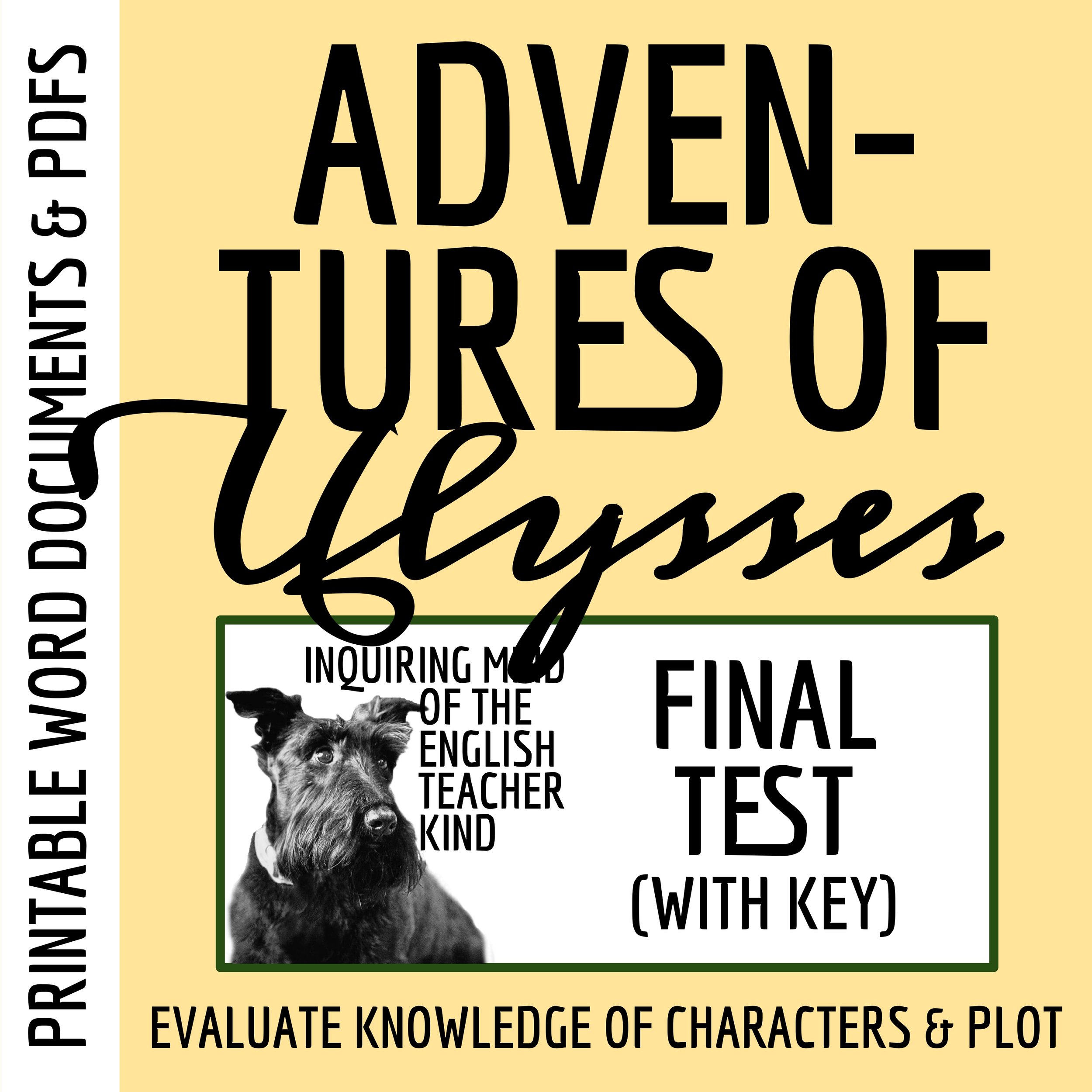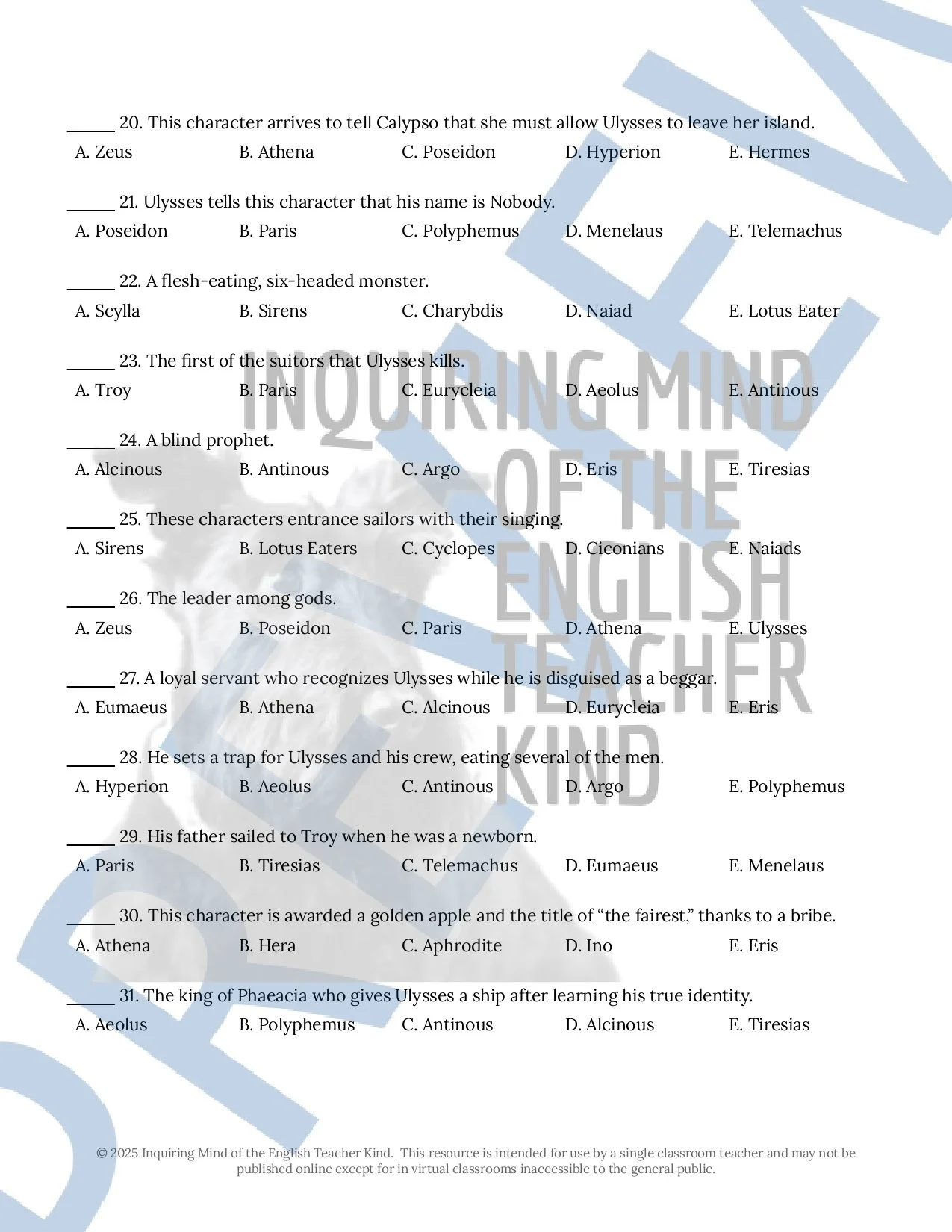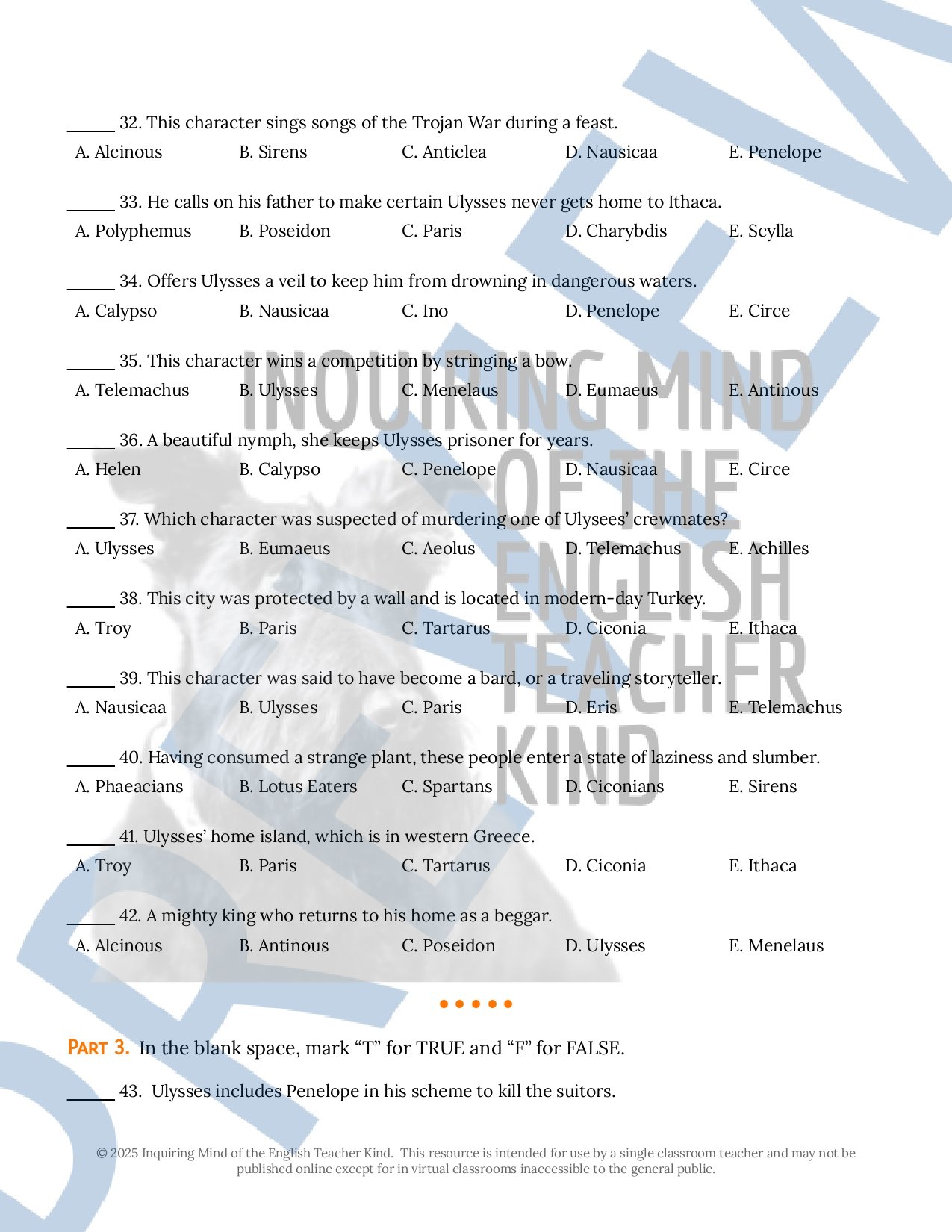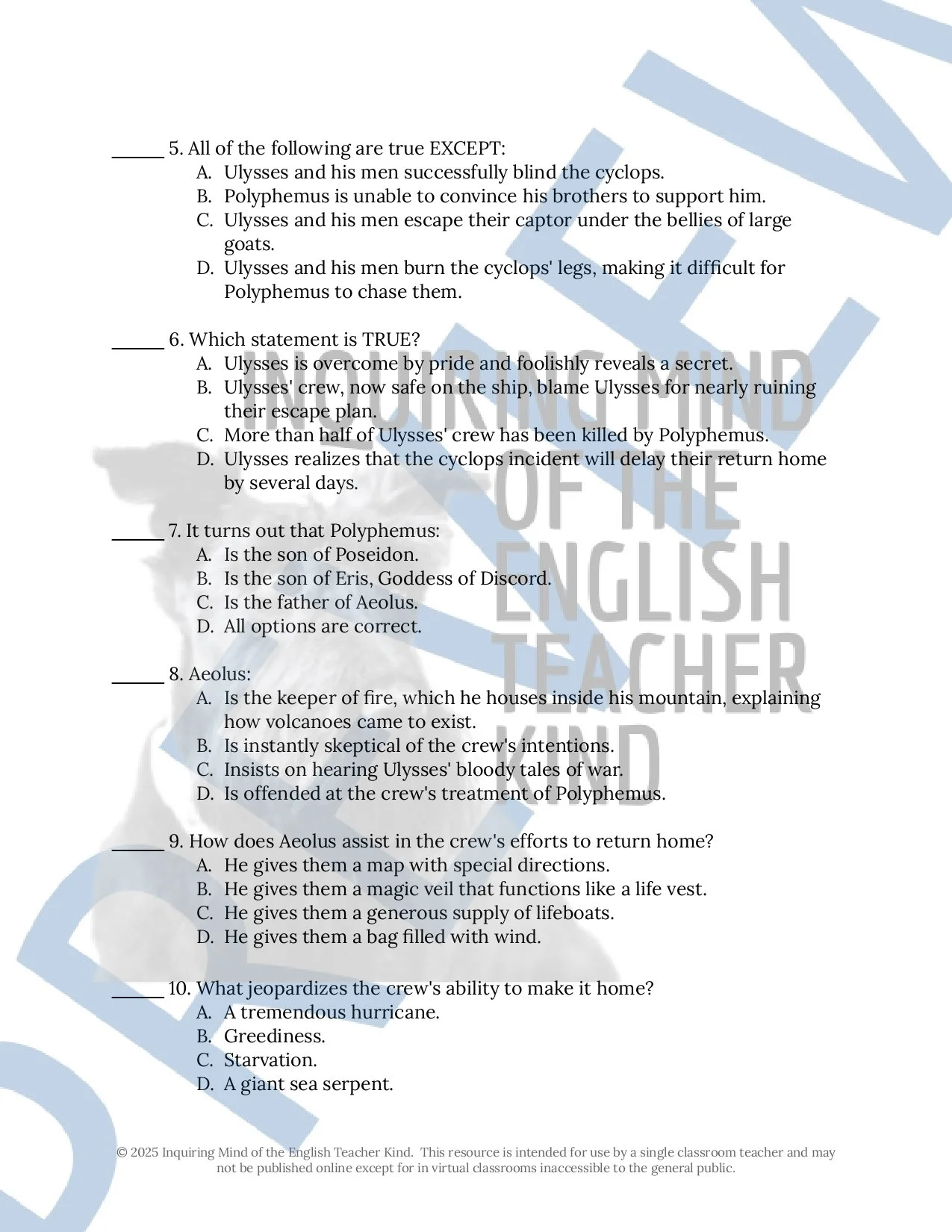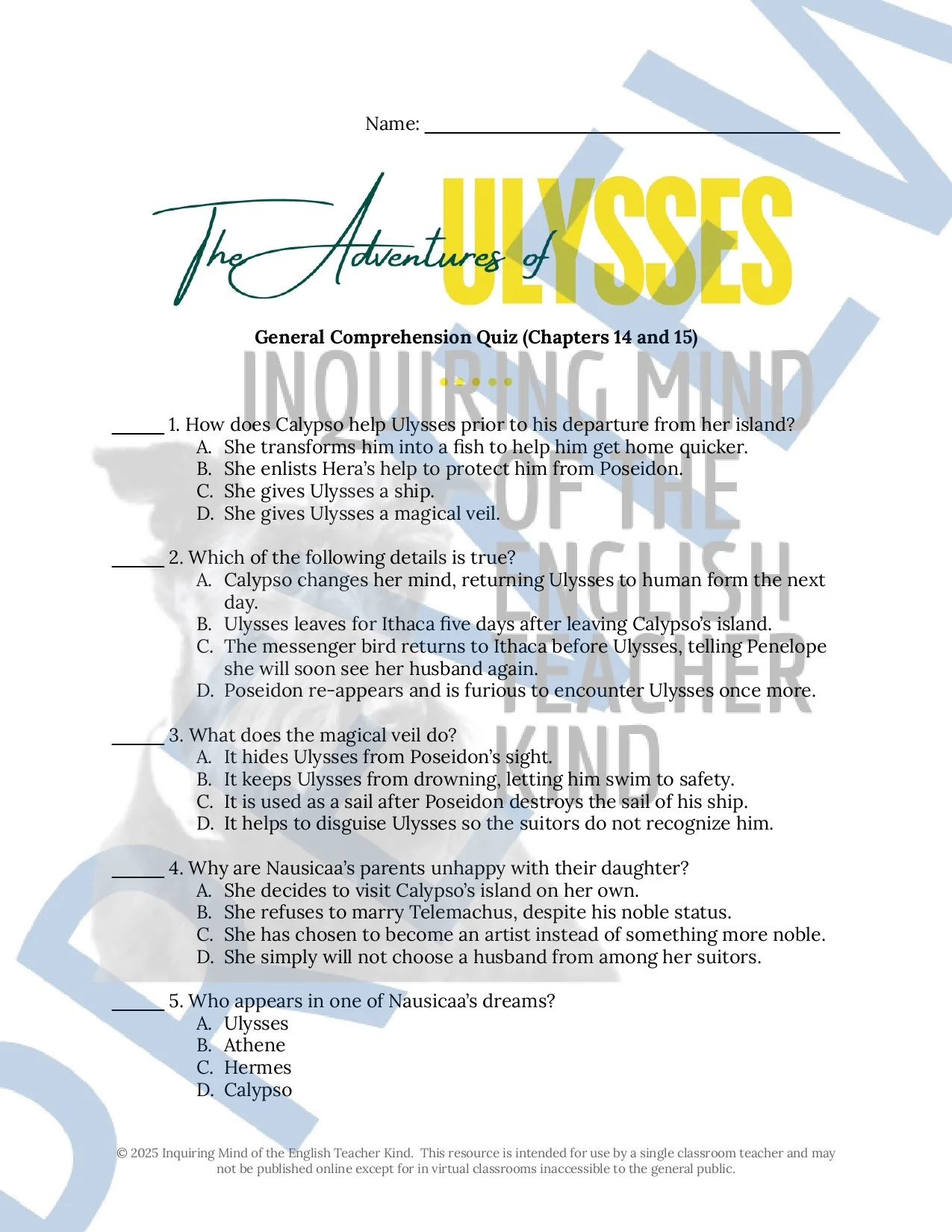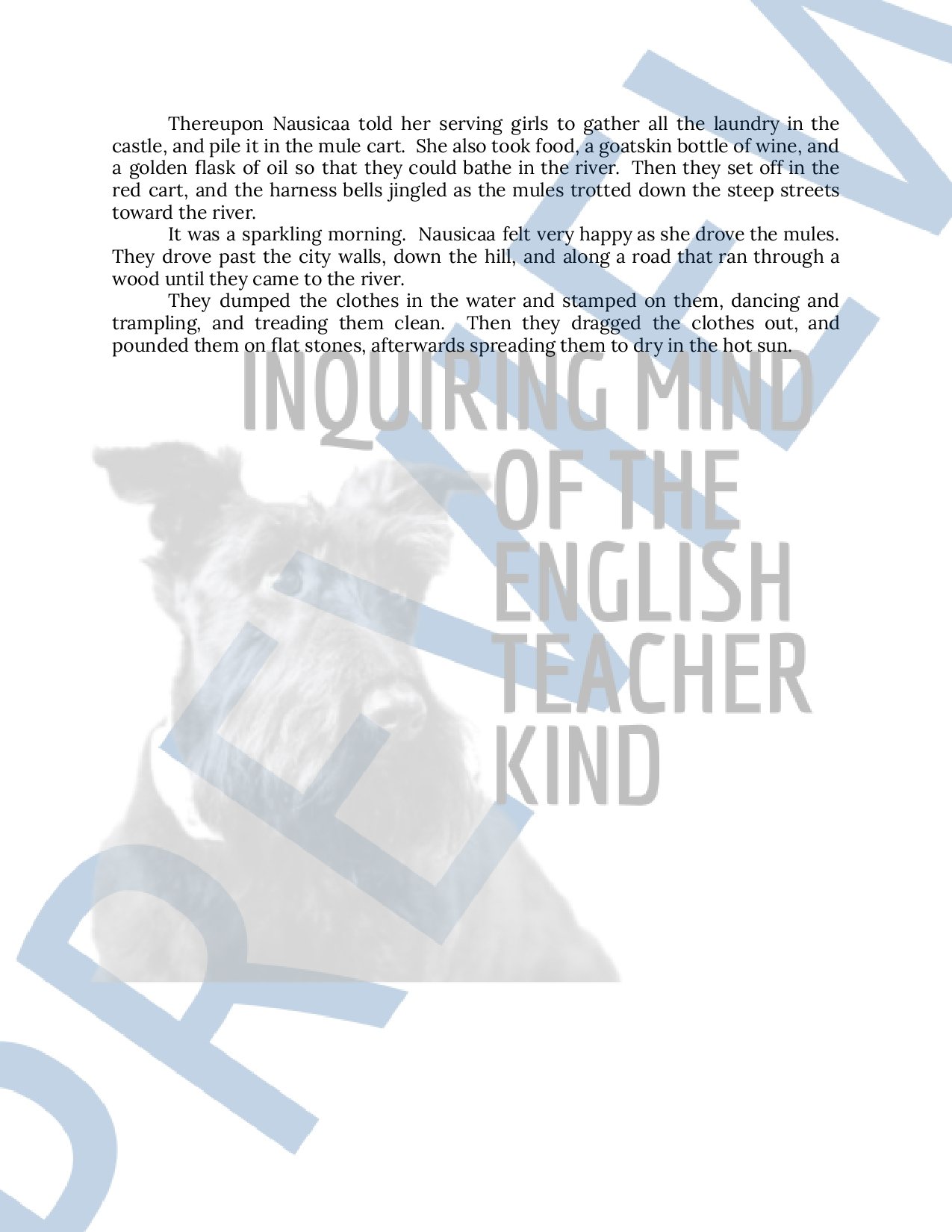 Image 1 of 13
Image 1 of 13

 Image 2 of 13
Image 2 of 13

 Image 3 of 13
Image 3 of 13

 Image 4 of 13
Image 4 of 13

 Image 5 of 13
Image 5 of 13

 Image 6 of 13
Image 6 of 13

 Image 7 of 13
Image 7 of 13

 Image 8 of 13
Image 8 of 13

 Image 9 of 13
Image 9 of 13

 Image 10 of 13
Image 10 of 13

 Image 11 of 13
Image 11 of 13

 Image 12 of 13
Image 12 of 13

 Image 13 of 13
Image 13 of 13














Adventures of Ulysses Chapter 16 Quiz, Inference Worksheet, and Vocabulary Games
Evaluate general reading comprehension, facilitate vocabulary development, and sharpen critical thinking skills with this bundle of materials for teaching chapter 16 of The Adventures of Ulysses by Bernard Evslin ("The Return"). A plot-based quiz, a close reading analysis worksheet, a vocabulary application activity, a crossword puzzle, a word search game, and answer keys are provided. Materials are delivered in editable Word Document and printable PDF formats. (Alternatively, a Google Drive bundle option is available.) By engaging with these materials, students will:
Identify what the text states explicitly and implicitly
Determine the meaning of unfamiliar and complex words
Consult reference materials in order to learn and verify word meanings
Discern the most proper application of words as they are used in sentences
Infer the intended effects of the author's word choices and narrative techniques
Explore how complex characters think, behave, interact, and develop
Compare two characters (Athene and Ulysses)
Apply knowledge of literary devices including epiphany
Explore themes that are reinforced in a given passage
This resource may serve as the basis for small-group discussions in which students decode language and pose/respond to questions relating to plot, broad topics, and character development. Using this resource for structured guidance, students will improve their ability to present information, conclusions, and supporting textual evidence clearly and convincingly.
Materials are available for teaching a variety of suspenseful novels:
Evaluate general reading comprehension, facilitate vocabulary development, and sharpen critical thinking skills with this bundle of materials for teaching chapter 16 of The Adventures of Ulysses by Bernard Evslin ("The Return"). A plot-based quiz, a close reading analysis worksheet, a vocabulary application activity, a crossword puzzle, a word search game, and answer keys are provided. Materials are delivered in editable Word Document and printable PDF formats. (Alternatively, a Google Drive bundle option is available.) By engaging with these materials, students will:
Identify what the text states explicitly and implicitly
Determine the meaning of unfamiliar and complex words
Consult reference materials in order to learn and verify word meanings
Discern the most proper application of words as they are used in sentences
Infer the intended effects of the author's word choices and narrative techniques
Explore how complex characters think, behave, interact, and develop
Compare two characters (Athene and Ulysses)
Apply knowledge of literary devices including epiphany
Explore themes that are reinforced in a given passage
This resource may serve as the basis for small-group discussions in which students decode language and pose/respond to questions relating to plot, broad topics, and character development. Using this resource for structured guidance, students will improve their ability to present information, conclusions, and supporting textual evidence clearly and convincingly.
Materials are available for teaching a variety of suspenseful novels:


Preview this resource:
Evaluate general reading comprehension, facilitate vocabulary development, and sharpen critical thinking skills with this bundle of materials for teaching chapter 16 of The Adventures of Ulysses by Bernard Evslin ("The Return"). A plot-based quiz, a close reading analysis worksheet, a vocabulary application activity, a crossword puzzle, a word search game, and answer keys are provided.

